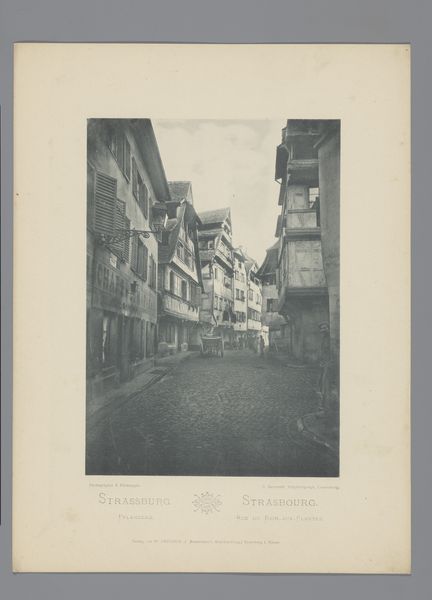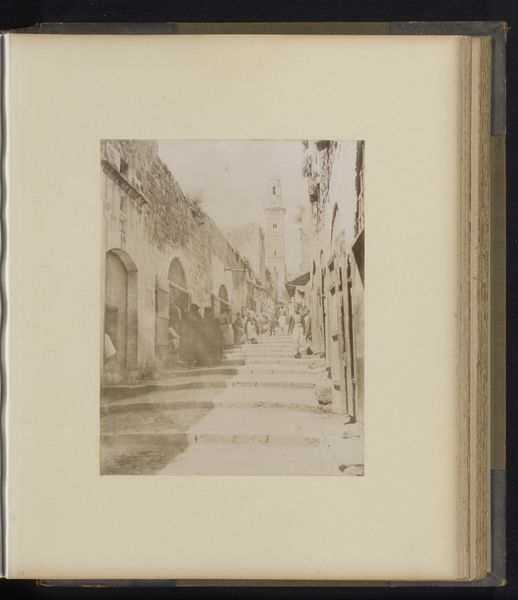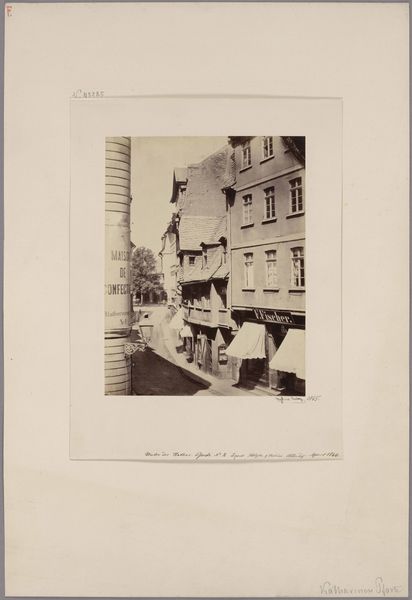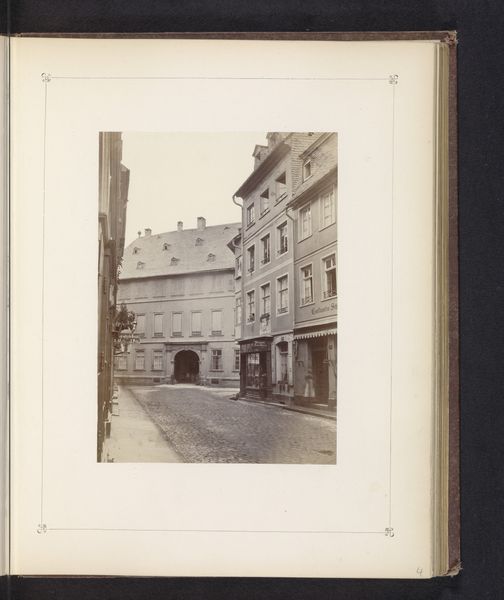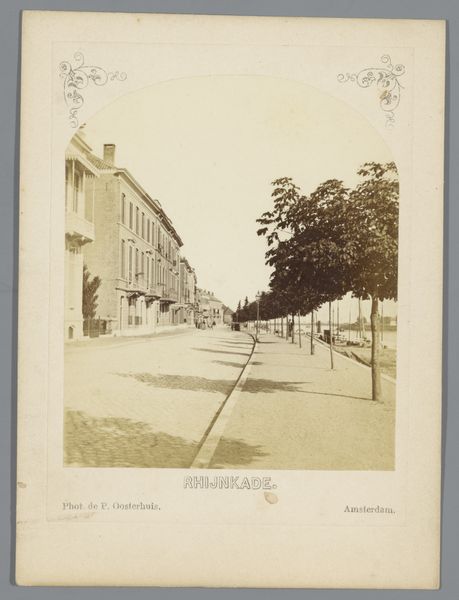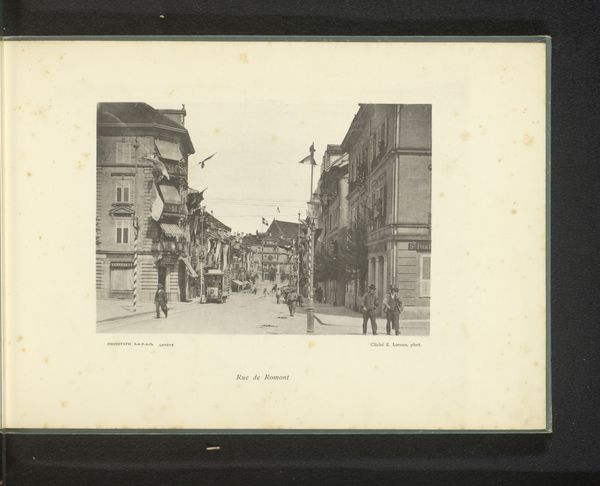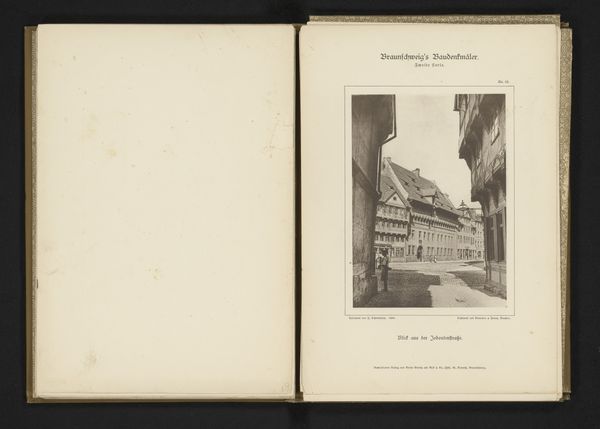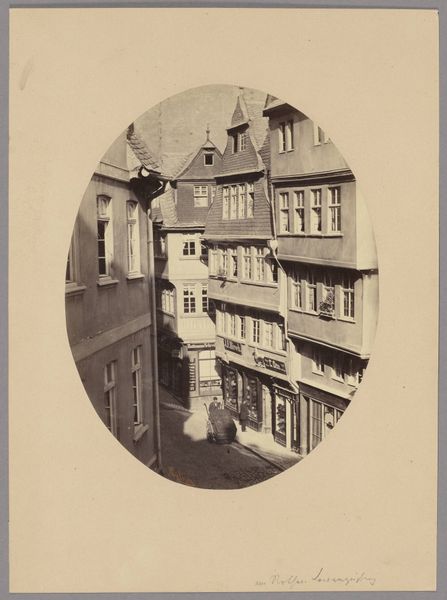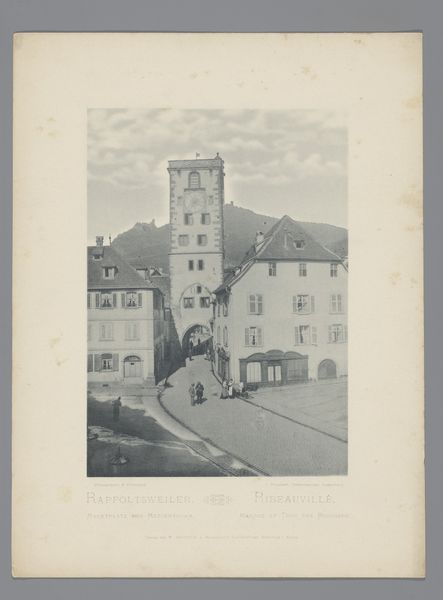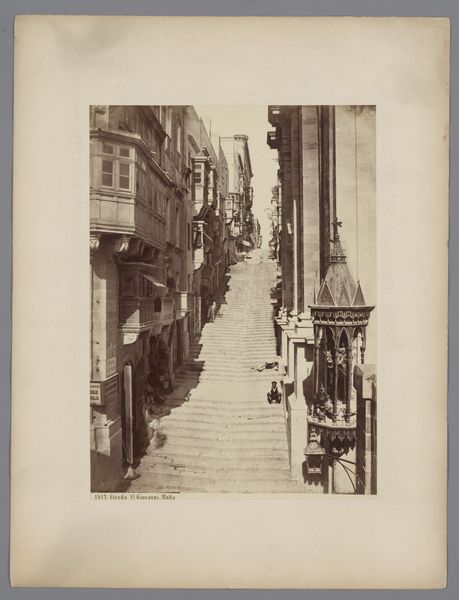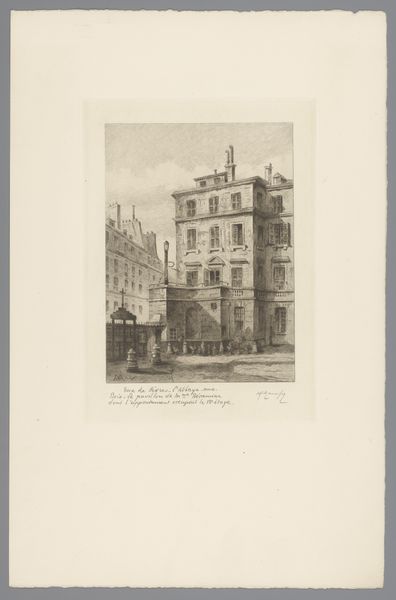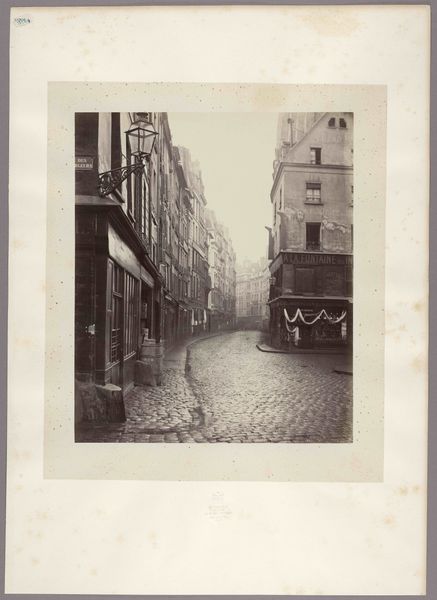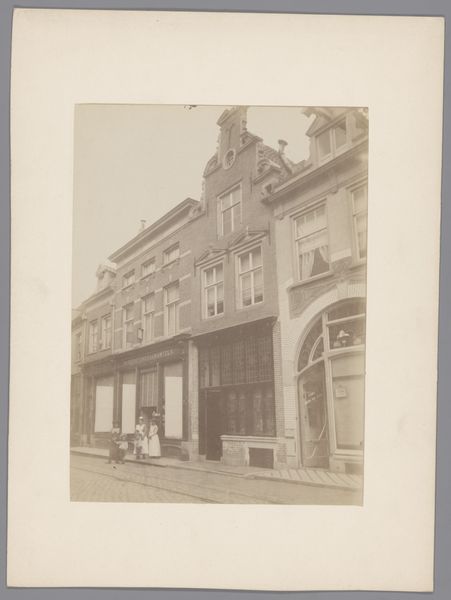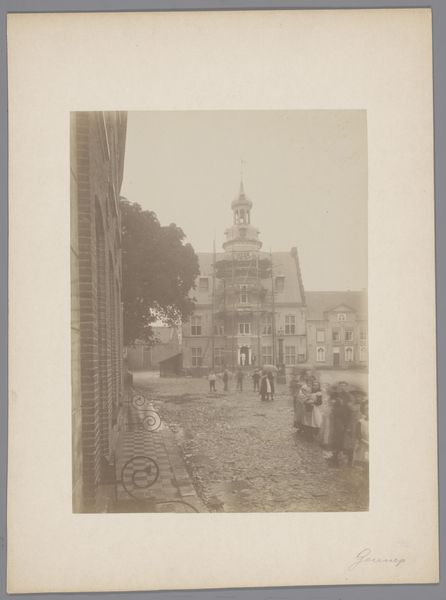
albumen-print, paper, photography, albumen-print, architecture
#
albumen-print
#
16_19th-century
#
germany
#
paper
#
photography
#
cityscape
#
albumen-print
#
architecture
#
realism
Copyright: Public Domain
Curator: This is an albumen print entitled "Frankfurt am Main_ Zeil, view towards the east," created in 1866 by Carl Friedrich Mylius. It resides here with us at the Städel Museum. Editor: My first impression is a feeling of ghostly presence. It is photorealistic, yet the few people captured appear blurred and ethereal, adding a peculiar silence to what must have been a bustling city street. Curator: Yes, the long exposure time, characteristic of early photography, renders the transient movements of everyday life as almost spectral presences. The Zeil was, and still is, one of Frankfurt's primary commercial thoroughfares. We can appreciate how crucial photography was in documenting urban growth and social change during the mid-19th century. Editor: I find myself drawn to the architectural details – the rhythm of windows, the subtle variations in building heights, and the ornate cornices. They speak to a rising middle class establishing a solid, lasting presence in Frankfurt. These buildings represent something far more enduring than the blurred figures passing by. Curator: Indeed. The architecture symbolizes stability and permanence, key values for the burgeoning bourgeoisie. The image evokes an inherent tension. Consider the juxtaposition of this rigid structural framework and the fleeting nature of human existence captured in motion. Photography allows us to appreciate how society's physical structures dictate individual and group identity. Editor: This image serves as a visual archive. It documents social aspirations and offers insights into evolving notions of civic identity during the era. You get an incredible sense of both the collective ambition and anxieties surrounding rapid urbanization. Curator: Ultimately, "Frankfurt am Main_ Zeil, view towards the east" acts as a historical touchstone. It lets us contemplate the ongoing negotiation between progress, memory, and identity. Editor: An echo from the past. It resonates, urging us to consider our own moment in time.
Comments
No comments
Be the first to comment and join the conversation on the ultimate creative platform.
